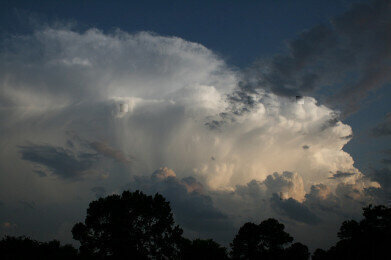Air Clean Up
How Does Pollution Affect Clouds?
Jun 22 2018
The impact of manmade pollution on clouds – and in particular, the effect of aerosols on a cloud’s ability to retain and disperse water – is one of the least well understood areas of global warming. Until now, traditional scientific dogma has held that pollutants make a cloud “wetter” by increasing its ability to retain water, and thus aerosols could be able to potentially offset the effects of climate change.
However, a new study from the University of Reading has revealed that this may not in fact be the case. By analysing infrared imagery of cloud forms over areas of high pollution – shipping channels, volcanic terrain and areas affected by wildfires – and comparing it with uncontaminated clouds, the researchers behind the paper were able to gain better insights into cloud responses to pollution.
Received wisdom
The majority of our knowledge on how clouds behave when subjected to pollution is based upon computer simulations undertaken by the Hadley Centre climate model. These investigations focused primarily on the liquid water path (LWP) – or ability of clouds to retain water – of clouds when exposed to high concentrations of aerosols.
They found that there were large increases in the amount of water an aerosol-cloud could retain, leading scientists to believe pollution made clouds “wetter” than before. However, such experiments fail to take into account the enhanced drying properties of the clouds as actioned by the impact of the aerosols, which reveals greatly different results than the Hadley Centre model produced.
A new approach
Published in the journal Geophysical Research Letters, the new study used a new technique of analysing satellite imagery of various clouds with normal cameras and with infrared ones. Led by Nicolas Bellouin, the researchers were able to see that the clouds which appeared plain white in normal imagery showed darker patches and patterns through the infrared lens.
This led them to believe that the clouds exposed to aerosols do not in fact retain more water, but simply redistribute the same amount over a greater area and a larger number of droplets. This casts doubt on the idea that aerosols can mitigate global warming and agrees with previous research which suggests that such pollutants exacerbate rising temperatures at higher elevations.
Curbing our carbon footprint
As a result of the new findings, the research team infer that we should not rely on aerosols to offset the damaging effects of greenhouse gases (GHGs) and should instead take proactive steps to limit our emissions. This applies not only to carbon and methane – the two most damaging GHGs – but also other pollutants, such as the reduction and capture of mercury emissions and other heavy metals.
The research also hopes to shed more light on the unpredictability of future climatic patterns, but calls for further investigations into the topic. In any case, it adds another (albeit small) reason to the mounting evidence which demands the human race make a collective effort to reduce its harmful impact on the environment.
Events
May 05 2024 Seville, Spain
May 13 2024 Munich, Germany
May 23 2024 Beijing, China
May 23 2024 Beijing, China
Jun 10 2024 Algiers, Algeria














